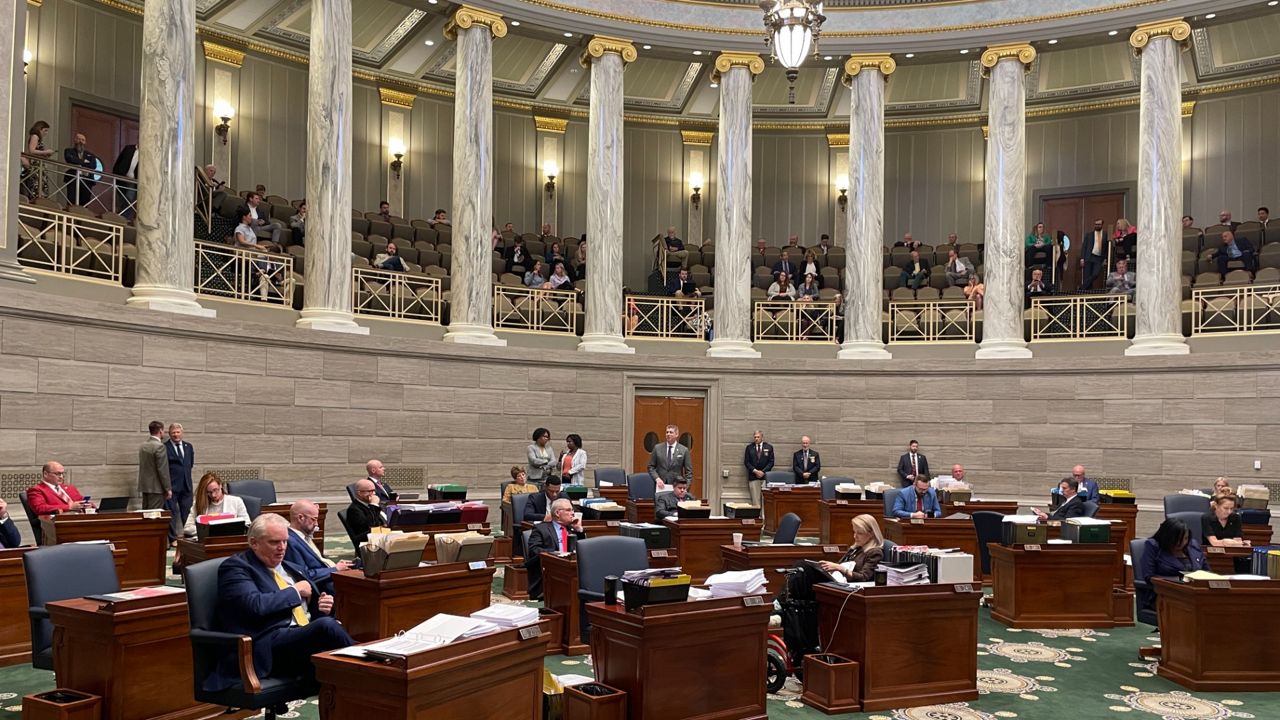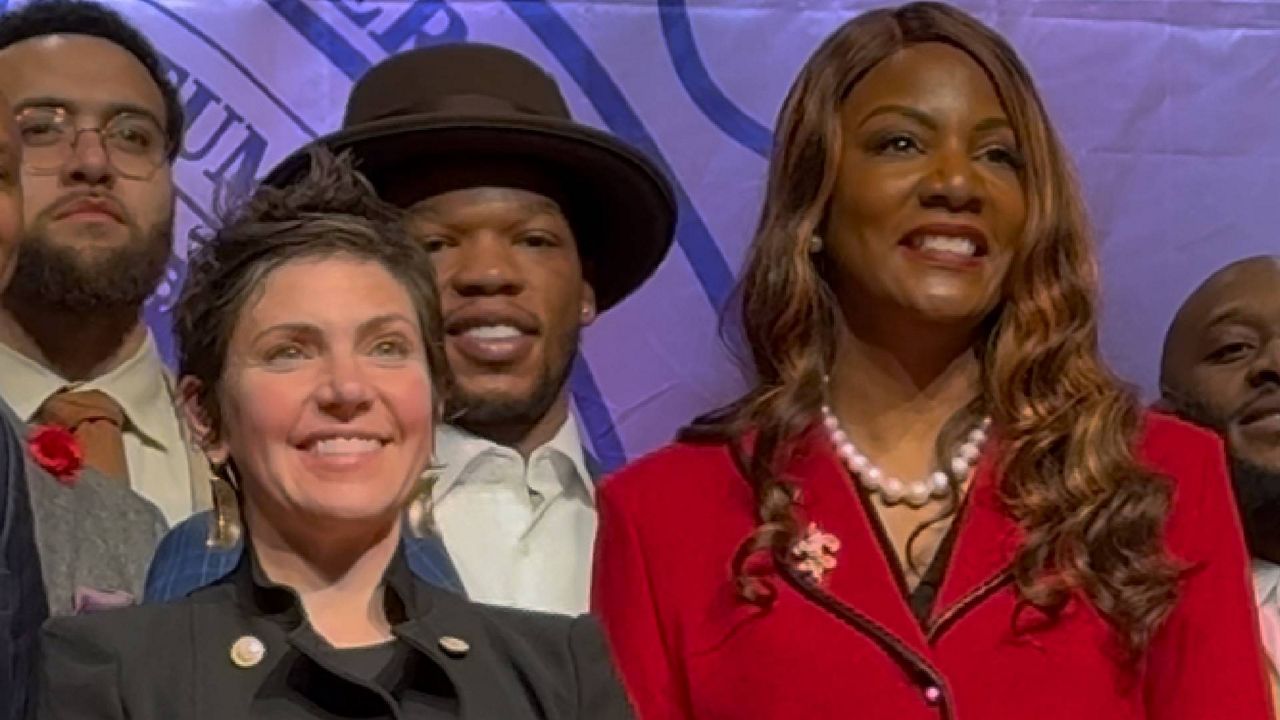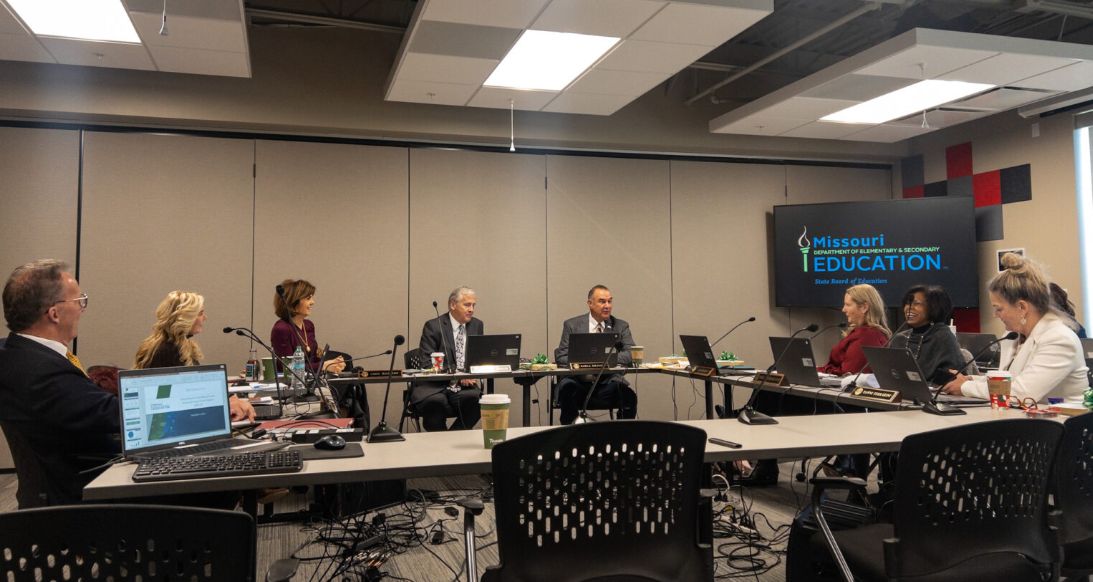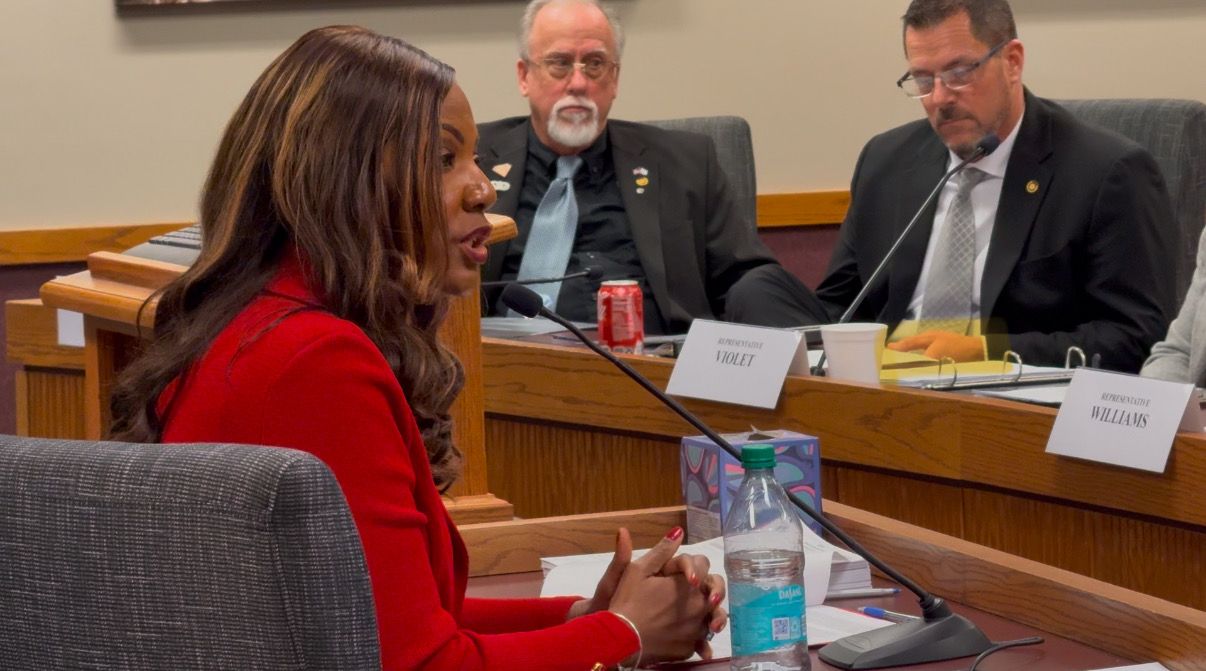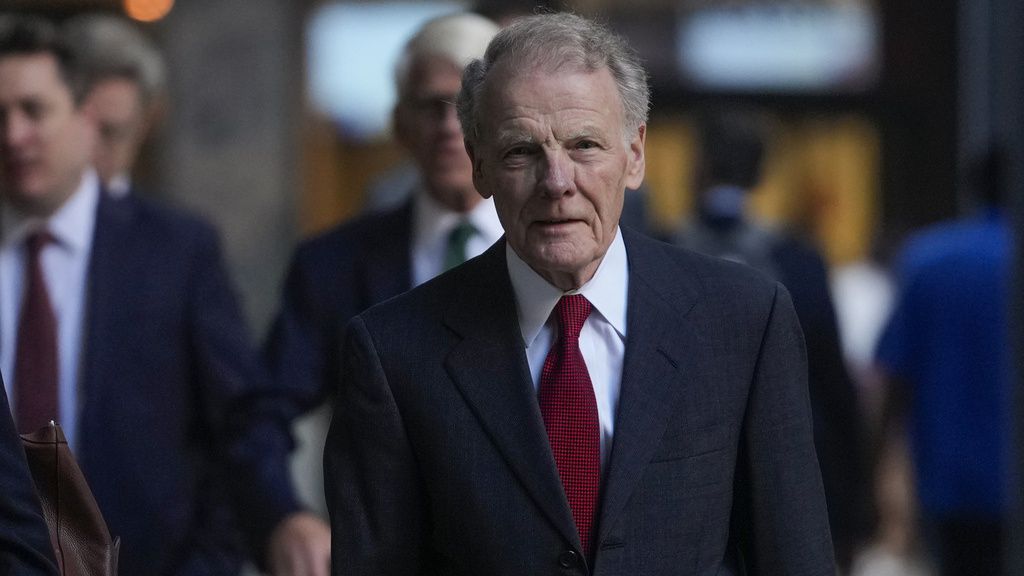JEFFERSON CITY, Mo.–The regular session of the 2023 Missouri General Assembly ended Friday without making changes to the state’s initiative petition process, seen as a priority in both GOP-controlled chambers this session, and without passing sports gambling legislation.
The Senate, which has been beset by filibusters this week, gaveled into session Friday morning and immediately broke down into parliamentary disputes and a filibuster that invoked Darth Vader.
State Sen. Bill Eigel, R-Weldon Spring, who held the floor late Thursday afternoon, upset about a lack of action on property tax cuts due to potential negotiations over sports betting, raised a point of order when the body moved to consider a bill on sports gaming.
Eigel, exploring a run for governor in 2024, said lawmakers faced their “Darth Vader” moment, which would decide their future.
That earned a rebuke from Majority Floor Leader State Sen. Cindy O’Laughlin, who was critical of “political theater” in the Chamber.
“We’re not all running for governor. We’re trying to do things in an orderly fashion and we cannot continue to have this chaos. That is what this is about. Nothing more. Nothing less," she said.
“Either we are going to have a Senate that is respected and stands on tradition or we’re going to have something like mud wrestling, which is about what we’ve had for the last couple of years. We cannot continue that way,” she said, adding that she had concerns about the impact of the property tax cut bill.
Among the last bills to pass both chambers was Senate Bill 45, which made it through the House Friday morning. If signed by Gov. Parson, low-income women will have full Medicaid benefits for the entirety of their pregnancy and for one year after through MO HealthNet.
The House also passed Senate Bill 133, a tax credit bill that included a provision for sports betting, in a late attempt with a little more than three hours left in session. But the measure died in the Senate as State Sen. Mike Moon R-Ash Grove and State Sen. Rick Brattin R-Harrisonville held the floor with discussion that began as a critique of the legislature's inability to pass a bill to limit foreign ownership of Missouri farmland.
On the last-ditch attempt at Senate Bill 133, Moon said "I'm not gonna bite".
Lawmakers head home without having reached agreement on a bill that would change the requirements for passing statewide ballot questions.
The House passed a constitutional amendment that moves the threshold for passage from more than 50% to 57%, while the Senate version would need 57% or a simple majority statewide and in five of Missouri’s congressional districts.
Following successful statewide campaigns to undo the state’s “Right to Work” law, provide for Medicaid expansion and legalize marijuana, initiative petition reform was an early priority for GOP leadership. Next year could bring statewide questions on abortion or sports betting.
The House GOP caucus held its end of session news conference before session technically ended.
Public Safety
House Speaker Dean Plocher, R-Des Peres, said in his first speech in the position in January that he wanted this session to address violent crime, calling out prosecutors who he said weren’t prosecuting criminals. It was a thinly veiled reference to embattled St. Louis Circuit Attorney Kim Gardner, who became a focal point of legislative efforts to authorize the governor to appoint a special prosecutor
An omnibus public safety bill with that provision passed the House and was merged with another bill that would have put St. Louis Police back under a state-appointed board. Those bills died in the Senate once Gardner, who was also facing a lawsuit from the Attorney General over her removal, announced her resignation, effective June 1.
Democrats argued that the state’s problems with crime is a result of the state’s lax gun laws, pointing to the fatal school shooting at CVPA in St. Louis last fall when someone who failed a background check could later make a private purchase, and that despite family concerns about the gunman having a weapon, police lacked the legal ability to take it away. Democratic party bills on guns failed to get committee hearings, and amendments filed on the floor were routinely defeated by the GOP supermajority.
Transgender issues
This year, Missouri joined the ranks of states which passed legislation banning transgender surgical treatment for minors, and at least for four years, banning the prescription of hormone therapy and puberty blockers for new minor patients once the bill takes effect in August.. Lawmakers also passed a bill banning transgender girls and women from playing on female sports teams at all school levels, including at the collegiate level.
The issues had been GOP priorities in previous sessions, but were overshadowed last year by the contentious issue of drawing congressional maps which dominated nearly the entire session.
Both transgender bills could face legal challenges.
Budget
The roughly $50 billion budget passed last week includes $2.8 billion to expand I-70 to three lanes in each direction between suburban St. Louis and Kansas City
The budget also prioritizes funding for pre-K education and child care, which influential business groups have said is needed to give parents and guardians the ability to work and hopefully ease Missouri's workforce shortage.
Lawmakers set aside $78 million for child care subsidies and another $56 million to expand access to pre-K.
Public K-12 schools will get $3.6 billion in primary funding, as well as the minimum amount required to provide busing to all students. Public colleges and universities will get a 7% funding hike.
Lawmakers also expanded a grant program to ensure K-12 teachers make at least $38,000 a year. Previously, the state asked local schools to chip in 30% of the cost to raise teacher pay to that minimum. Beginning in July, the state will foot the bill to hike pay to that level.
Lawmakers ultimately kept public funding for libraries and government spending on diversity, equity and inclusion efforts, despite a controversial push by the House to zero-out those programs.
Lawmakers will return to Jefferson City Sept. 13 for the annual veto session, unless called back for a special session.





